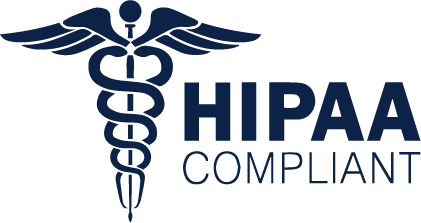
The Ultimate Guide to
The Health Insurance Portability and Accountability Act (HIPAA)
Introduction
The Health Insurance Portability and Accountability Act (HIPAA) sets the standard for sensitive patient data protection. HIPAA requires that covered entities (anyone providing treatment, payment, and operations in healthcare) and business associates (anyone who has access to patient information and provides support in treatment, payment and operations) must meet a set of rules.
What is the Health Insurance Portability and Accountability Act (HIPAA)?

HIPAA mandates that every covered entity and business associate with access to Personal Health Information (PHI) must have technical, physical, and administrative safeguards to protect the integrity of PHI. And, should a breach of PHI occur, organizations must follow a procedure to notify affected parties. HIPAA compliance is regulated by the Department of Health and Human Services (HHS) and enforced by the Office for Civil Rights (OCR).
HIPAA compliance requires effort. Organizations must make significant investments, including identifying gaps in compliance by conducting self-audits, creating remediation plans to reverse compliance violations, developing policies and procedures, documenting all efforts they take to become HIPAA compliant, creating an incident management process and more.
Failure to comply with HIPAA has serious consequences. The breach of electronic PHI may result in substantial fines, criminal charges and civic action lawsuits. The Office for Civil Rights of the Department of Health and Human Services does not consider ignorance of HIPAA regulations a justifiable defense.
To be HIPAA compliant, covered entities must meet three core requirements:
1 The Privacy Rule
HIPAA protects the privacy of Protected Health Information (PHI) via the HIPAA Privacy Rule, which establishes standards for protecting medical records and other PHI and sets limits and conditions on using and disclosing PHI without patient authorization. This rule also gives patients the right to access copies of their health records and ask providers to make corrections to their PHI.
2 The Security Rule
All covered entities must establish security standards that protect all created, received, used, or maintained electronic PHI (ePHI). According to OCR, the security rule “requires appropriate administrative, physical and technical safeguards to ensure the confidentiality, integrity, and security of electronically protected health information.”
3 Notification in Case of Breach of Unsecured Protected Health Information
If a HIPAA-compliant organization experiences a breach, they are required to notify certain parties — including individuals, the media, and the Secretary of Breaches of Unsecured Information — depending on the type and size of the breach.
OCR defines a breach as “an impermissible use or disclosure under the Privacy Rule that compromises the security or privacy of the protected health information.” Breaches include not just those caused by hackers or malware, but also by employees inappropriately disclosing information or leaving it where unauthorized users can see.
A brief history of HIPAA
HIPAA mandates that every covered entity and business associate with access to Personal Health Information (PHI) must have technical, physical, and administrative safeguards to protect the integrity of PHI. And, should a breach of PHI occur, organizations must follow a procedure to notify affected parties. HIPAA compliance is regulated by the Department of Health and Human Services (HHS) and enforced by the Office for Civil Rights (OCR).
Why was HIPAA created?

Before HIPAA, the health insurance industry was regulated by a mix of state and federal laws. Most commercial group health plans were governed by state laws, while the majority of employer-sponsored and individually purchased health plans were subject to the Employee Retirement Income Security Act of 1974 (ERISA) and the Consolidated Omnibus Budget Reconciliation Act of 1985 (COBRA).
As a result, employees were at risk of losing health insurance benefits or being denied health insurance if they changed jobs. This scenario not only affected employees, but also made it difficult for employers to attract skilled workforces, especially in evolving industries like technology.
HIPAA was created to resolve this issue by increasing the portability of health insurance between jobs and prohibiting practices that denied or limited access to health care benefits, including increased premiums for employees with pre-existing conditions. Rather than applying to employer-sponsored and individually purchased health plans, HIPAA applies to all health insurance plans.
How do I become HIPAA compliant?
HIPAA compliance requires effort. Organizations must make significant investments, including identifying gaps in compliance by conducting self-audits, creating remediation plans to reverse compliance violations, developing policies and procedures, documenting all efforts they take to become HIPAA compliant, creating an incident management process and more.
Guide
To learn how to become HIPAA compliant, check out our in-depth guide
Ready to see how Hyperproof can help with HIPAA compliance?
Trusted By






HIPAA: Frequently Asked Questions
Hyperproof Makes HIPAA Compliance Simple

Ready to see
Hyperproof in action?












